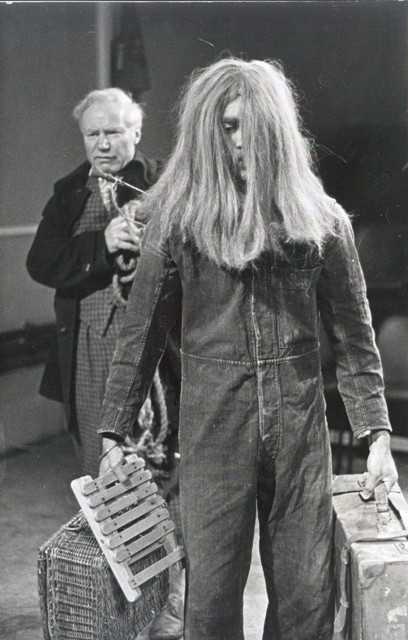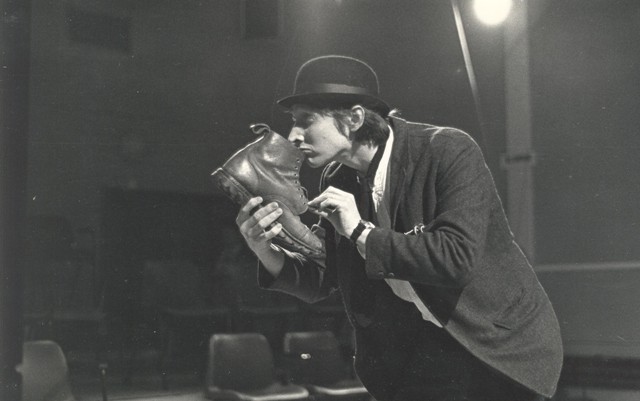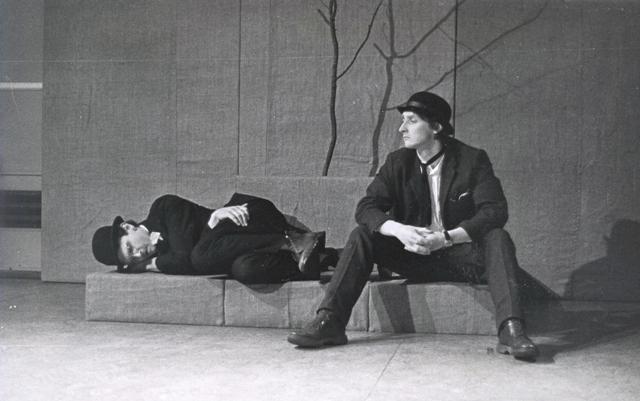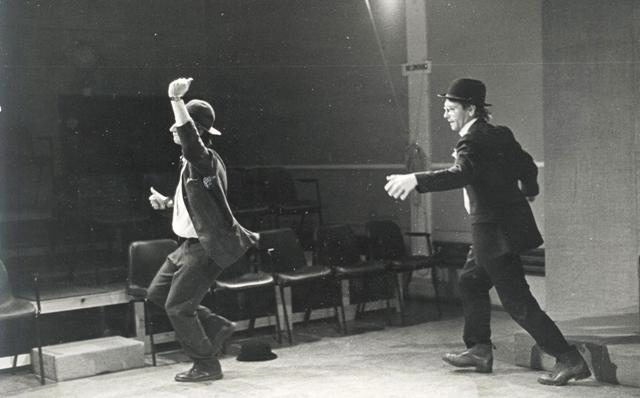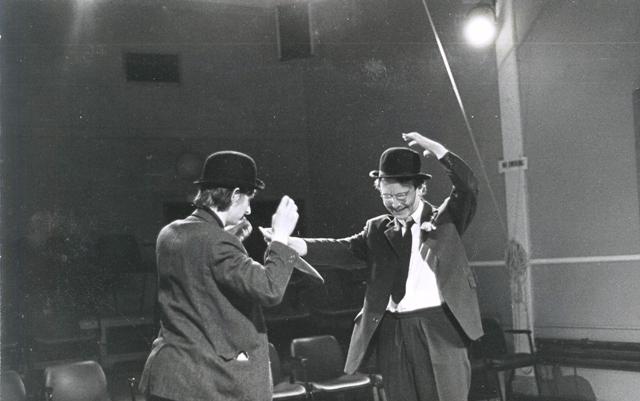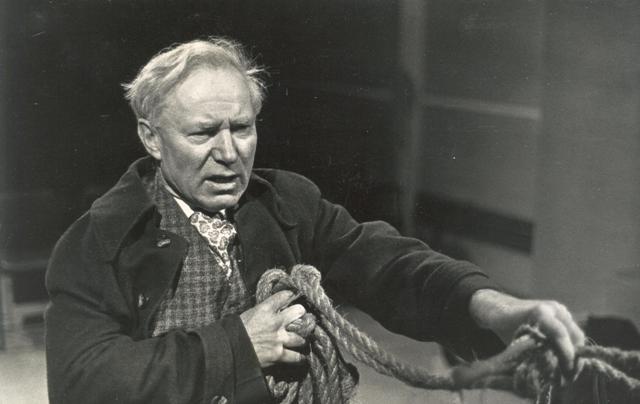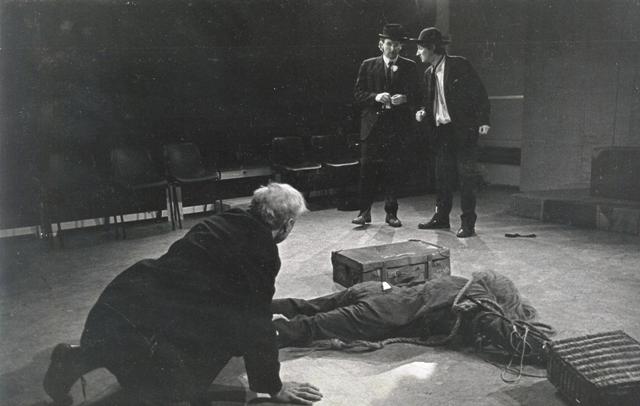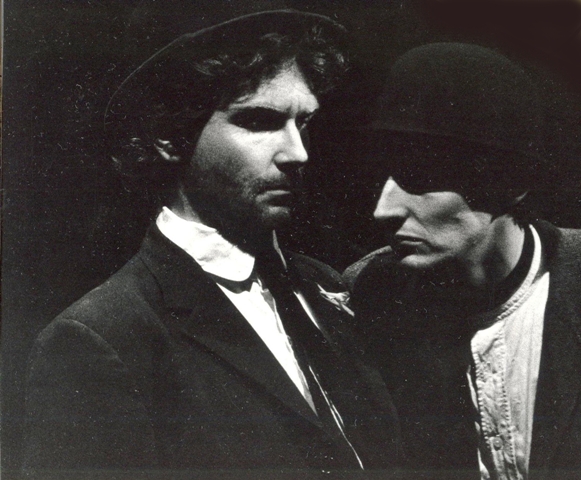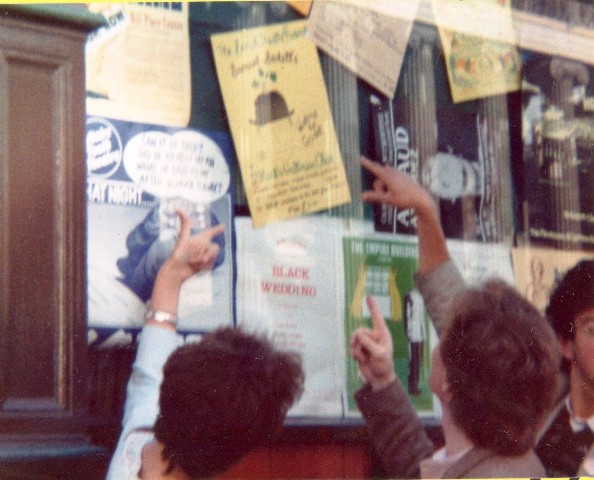The Bench Production
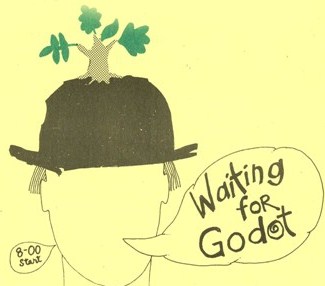
This play was staged at Bench Theatre's home since 1977 - Havant Arts Centre, East Street Havant for its first six performances. Then, following a huge fund-raising effort by the whole company to raise the necessary £500, it was taken to the Edinburgh Fringe Festival in August later the same year.
Cast
| Estragon | David Penrose |
| Vladimir | Stuart Sheach |
| Lucky | Narinder Dhillon |
| Pozzo | Tim Mahoney |
| A Boy | Langley Gifford |
Crew
| Director | Langley Gifford |
| Stage Manager | Anne Brodrick |
Director's Notes
In choosing to bring 'Waiting for Godot' to Edinburgh we immediately step onto dangerous ground - if only because we are well aware it has already been so well trodden. The play has had enormous drawing power for actors and directors ever since its first performances; interpretations have followed on each others heels with wide ranging stances taken in relation to who, or what Godot might be. The playwright has kept characteristically silent.
Our production takes no single route; we have nothing definitive on offer. We have started out with the assumption that the play's common currency lies in both the comedy and pathos of hope and despair; that the road ends neither in blinkered optimism nor a violent rejection of life.
We hope we have fairly represented Beckett's play
Langley Gifford
Reviews
The News A.B.
"Playgoers opt for TV performance"
'Waiting for Godot', Samuel Beckett's entertaining but obscure reflection on futility is an acquired taste. Last night the less subtle intrigues of the General Election performance kept audiences planted firmly in front of their television instead of turning out to make up the usual first-night full house at Havant's Bench Theatre. Critics have pondered for years about the meaning of Beckett's strange story of two tramps interminably waiting for someone who never turns up. After it first came to Britain in the 50s many stopped trying to understand it and gave it up as just plain boring. Beckett might have anticipated that, for one of his characters beneath cretins and sewer rats. Since then his play has been elevated to the fashionable status of a 20th Century classic - and like all Real Art must be beyond reproach. Whether it really is "metaphysically meaningful" as the Bench Theatre states, or is just a rather odd, low-key comedy is open to interpretation. Either way, the Bench turned out a masterly first-night performance of this marathon two-hour 40-minute production.
Laurels must go to David Penrose who somehow improved upon his usual excellence with his interpretation of Gogo, the little tramp with the Irish brogue and ill-fitting boots. Giving a less than excellent performance was the heating at the Arts Centre, which ranged from non-existent, leaving the audience shivering, to stifling and soporific - and the last thing any company wants is to send its audience to sleep. 'Godot' gives Bench member Langley Gifford his first chance of direction - not a tough task with a maximum of only 4 actors onstage at one time - but one to which he has proved himself more than equal. His work can be sampled tonight, tomorrow and on May 10, 11 and 12 at 7.30 p.m. at Havant Arts Centre in East Street. Tickets 60p.
The News, 5th May 1979
